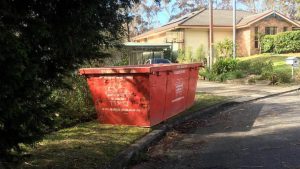Decluttering Your Home: Skip Bin Dos and Don’ts
Decluttering your home can be a daunting task, but with the help of a skip bin, the process becomes much more manageable. Skip bins provide a convenient solution for disposing of unwanted items, whether you’re tackling a renovation project, clearing out the garage, or simply organizing your space. However, it’s essential to know the dos and don’ts of skip bin usage to ensure a smooth and efficient decluttering process. In this guide, we’ll explore the dos and don’ts of using skip bins for home decluttering, helping you make the most of this valuable resource. Decluttering Your Home: Skip Bin Dos and Don’ts
Understanding Skip Bin Regulations
Before you start filling up your skip bin, it’s crucial to familiarize yourself with local regulations regarding waste disposal. Different areas may have specific rules and restrictions on what can and cannot be disposed of in skip bins. Failure to comply with these regulations can result in fines or penalties, so it’s essential to do your research beforehand. Contact your local council or waste management authority to inquire about skip bin regulations in your area.

Decluttering Your Home: Skip Bin Dos and Don’ts
Skip Bin Dos
1. Sort and Segregate
Before loading items into your skip bin, take the time to sort and segregate them properly. This not only helps maximize space in the bin but also facilitates recycling and proper disposal. Separate items into categories such as general household waste, green waste, construction debris, and electronic waste. This ensures that each type of waste can be disposed of in the most appropriate manner.
2. Dispose of Acceptable Items
Ensure that you only dispose of items that are acceptable for skip bin disposal. Common acceptable items include general household waste, green waste, construction debris, and metal items. Be sure to check with your skip bin provider or local regulations to confirm what can be disposed of in your skip bin.
3. Fill the Skip Bin Properly
When loading items into your skip bin, distribute the weight evenly and avoid overfilling. Overloading the skip bin can make it unsafe for transportation and may incur additional fees. Fill the skip bin up to the designated fill line and avoid stacking items above the rim.
4. Cover the Skip Bin
After filling the skip bin, cover it with a tarp or secure it with a lid to prevent debris from blowing away during transportation. This not only keeps the surrounding area clean but also ensures the safety of pedestrians and motorists.
Skip Bin Don’ts
1. Don’t Dispose of Prohibited Items
Avoid disposing of prohibited items in your skip bin, as this can pose safety and environmental hazards. Prohibited items may include asbestos, chemicals, hazardous materials, medical waste, paint, and gas bottles. Attempting to dispose of these items in a skip bin can result in fines or penalties.
2. Don’t Mix Different Types of Waste
Avoid mixing different types of waste in the same skip bin, as this can complicate recycling and proper disposal efforts. Keep general household waste separate from green waste, construction debris, and electronic waste to facilitate sorting and recycling.
3. Don’t Block Access to the Skip Bin
When placing your skip bin on your property or on the street, ensure that it does not block access to driveways, sidewalks, or other thoroughfares. This allows for easy access for waste collection vehicles and prevents obstruction for pedestrians and motorists.
4. Don’t Overload the Skip Bin
Avoid overloading the skip bin beyond its capacity, as this can make it unsafe for transportation and may result in additional fees. If you have more waste than your skip bin can accommodate, consider renting an additional bin or arranging for alternative disposal methods.
Conclusion
Using a skip bin for home decluttering can streamline the process and help you achieve a clean and organized living space. By following the dos and don’ts outlined in this guide, you can ensure a smooth and efficient decluttering experience while adhering to regulations and promoting environmental responsibility. Remember to research local regulations, sort and segregate waste properly, and only dispose of acceptable items in your skip bin. With a little effort and attention to detail, you can declutter your home with ease.
